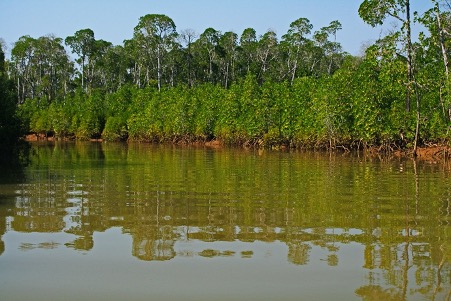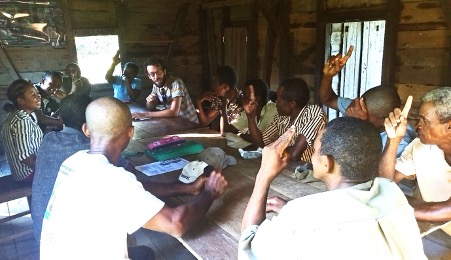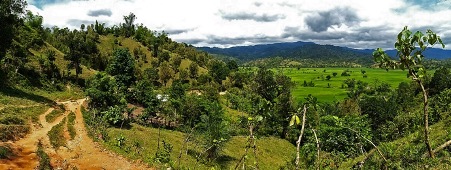Delivering climate-development co-benefits in Madagascar
Projects worldwide are looking into the potential for forest management to deliver climate benefits, but they also have the potential to bring development co-benefits to local communities. In a new paper, researchers from the University of Leeds examine the potential for forestry projects to deliver climate-development co-benefits and engage with local communities.
The study focuses on ecological restoration and rehabilitation projects in Madagascar, with two case study areas, the Eden Project and the Mariak Forest Project. As a major biodiversity hotspot and with communities that are dependent on natural resources for their livelihoods, Madagascar is highly vulnerable to the impacts of climate change. Conservation projects need to address the complex climate-development challenges faced by Madagascar.

Credit: Nicola Favretto
Employing a mixed methods approach, including semi-structured interviews, focus groups and wider analysis, the research investigates stakeholder perspectives on the potential for ecological restoration projects to deliver wider benefits to the community, supporting climate change mitigation, adaptation and also development. Lead author, Dr Nicola Favretto, said “Meaningful and long-term engagement of stakeholders allows the pursuit of locally-relevant approaches’. The interviews indicated the need for conservation projects to support the basic needs of the community, namely access to drinking water, basic health care and education, but meeting basic development needs is made more difficult by climate change impacts such as changes to rainfall distribution and rising temperatures.

Credit: Nicola Favretto
The study finds that forest projects focused on ecological restoration have the potential to deliver wider benefits to the communities, particularly if considered at an early stage in project development, helping to build adaptive capacity. However, whilst mobilising capital and resources can enable the projects to support wider development, there are cases where the resources are not used effectively to increase the adaptive capacity of the communities to environmental challenges.

Credit: Nicola Favretto
To build adaptive capacity, mitigation and support local development, engagement and cooperation of stakeholders must be strengthened to ensure that the needs of the community are met whilst supporting climate-development objectives. The study identifies how the benefits of specific projects are linked to local challenges. By taking a holistic and collaborative approach to challenges that the communities face, it is possible for the ecological restoration and rehabilitation strategies to successfully address both climate change and development and support the delivery of benefits over time.
